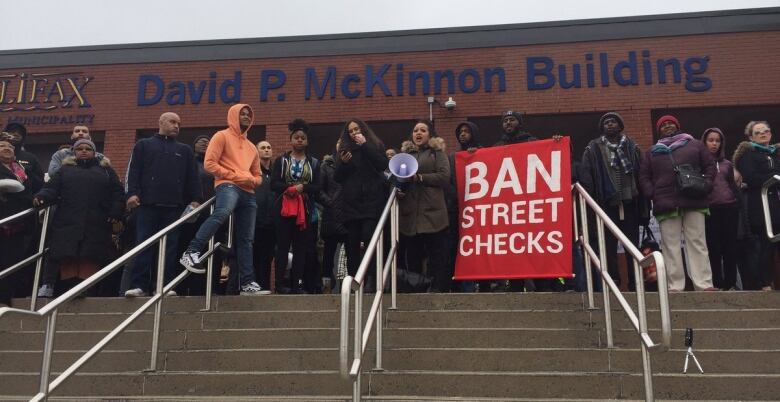Halifax police want to know how much confidence citizens have in them
Some community members say police are not asking important questions

Halifax Regional Police have a new list of questions to gauge the public's confidence in their officers, but some members of the public say important questions got left off the list, which they worry could be detrimental to police-community relations.
A report released earlier this month describes how most police services in Canada do regular public confidence surveys, but not in a standardized way. The report was compiled by Halifax Regional Police and Public Safety Canada. They developed a list of 12 questions they recommend all Canadian police forces should ask.
"I think this is something that both provincial public safety departments and then more nationally need to be looking at, because it's one indicator of how the criminal justice system is functioning," said Michael Boudreau, a professor of criminology and criminal justice at St. Thomas University in Fredericton.
On Friday, Halifax Regional Police will issue an apology for the use of street checks, which allow police officers to document information about a person they believe could be of significance to a future investigation, and record details such as their ethnicity, gender, age and location.
A report released in March found black people were street checked at a rate six times higher than white people in Halifax. Many people said their confidence in police had been eroded by the practice.

Boudreau said most of the questions in the report are good and a standardized survey could be useful. However, he has concerns.
"Given how broad some of these questions are, the results may come back as very favourable for the police, saying we have tremendous confidence in the police," he said. "And the police may then use that to say, 'Well indeed, the public has confidence in us, so we don't need to change.'"
One question asks to what extent people agree or disagree with the statement, "The police make decisions based on facts."
Boudreau said he thinks the question asks the public to make an assumption.
"How do we know if the police indeed had all of the facts at their disposal before they made a decision to charge someone?" he said.

Boudreau said investigators don't reveal facts about about investigations until trial, which makes it difficult for the public to judge the quality of police decision-making.
"That is a fairly broad question that a lot of people will probably say, 'Yes, I agree with that because I assume that's what they do.' So do we then extrapolate from that that everyone has confidence in the police?"
Another question asks people whether they "generally support how the police usually act." Boudreau said this question is ambiguous.
'Why hide behind generic, sanitized questions?'
Social worker and community advocate Robert Wright thinks it's a good idea for police to ask questions and learn whether the community has confidence in them. But he calls on them to ask more "courageous" questions.
Wright said it's clear the public is concerned about the policing of groups like black Canadians, LGBTQ people and women. He thinks police should be asking the public how well they think the police are respecting the rights of people in those groups.
"These are the very specific questions and areas of police practice that we know we're looking to hear about, so why not ask the question? Why hide behind generic, sanitized questions?" said Wright.
"Ask those questions, and at least in asking the questions you're demonstrating to the people fulfilling the survey that, oh, the people asking the survey are aware that we have challenges," he said.
Read the report questions here:
(PDF KB)
(Text KB)CBC is not responsible for 3rd party content
As the street checks apology approaches, Wright has been thinking a lot about the relationship between police and the public, and what kind of acts he wants to see from police to build trust and confidence with the community.
Boudreau said situations like the street checks apology are partially about attempting to restore public confidence in policing. He suggested situations when police are in the wrong can be captured in the survey question about how often police exceed their authority.
"But what it's not really capturing is, what should be done with those officers who exceed their authority or do not act in a professional way?" he said. "In other words, are the police held accountable for their actions? These questions may not get to that."
In 2017, the Halifax board of police commissioners approved a staff report that proposed creating the survey questions, carrying out a quarterly telephone survey and partnering with Public Safety Canada.
What Halifax police are saying
Halifax police declined to do an interview about the survey or the process of forming the questions. In an email, public relations and communications manager Neera Ritcey said police are still collecting input from "key stakeholders" like the board of police commissioners.
Ritcey said the survey questions that will be used in Halifax haven't been finalized and that police would be "happy" to talk about them at a later date.

According to the report, the questions were created by four experts in public attitude surveying and four police service representatives who regularly work with such surveys.
The questions were field tested in a survey of 2,527 people in Halifax, Calgary, Ottawa and other areas, and further vetted by two professors from the United Kingdom who research trust in police.
In addition to the 12 core questions, the report recommends collecting demographic information such as gender identity, ethnicity, age and income.

